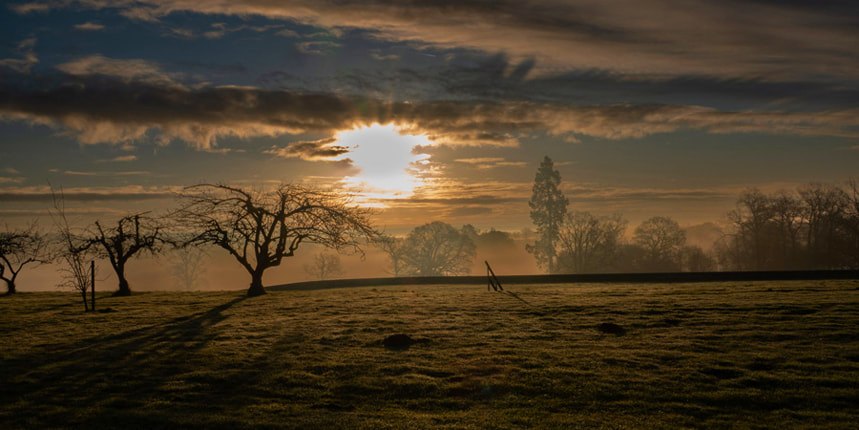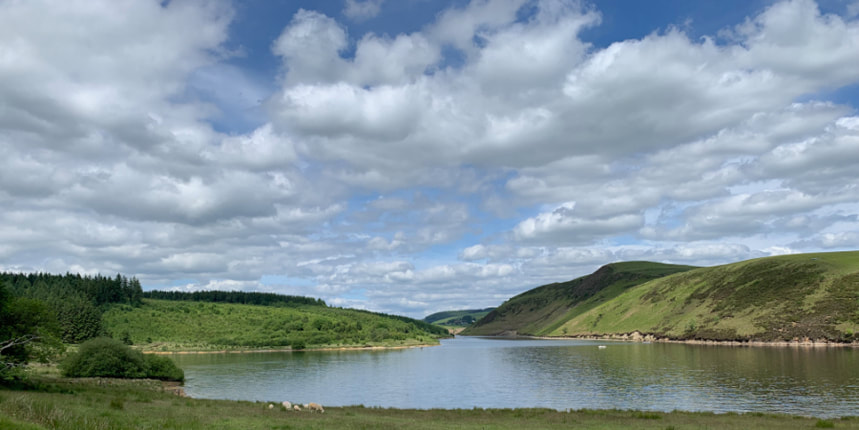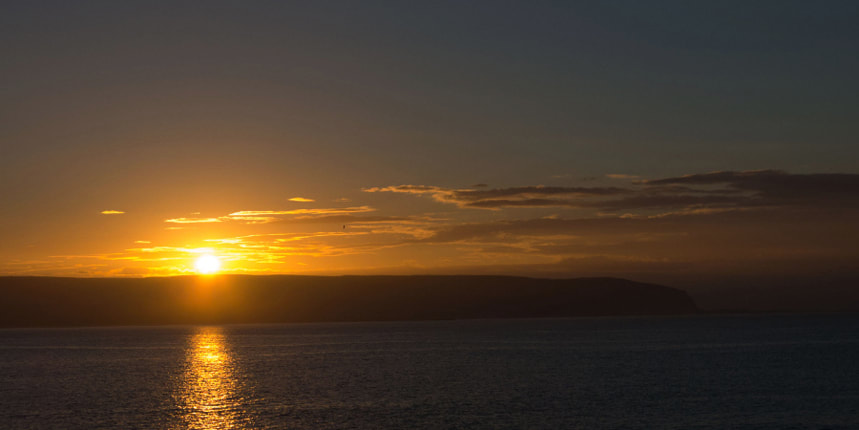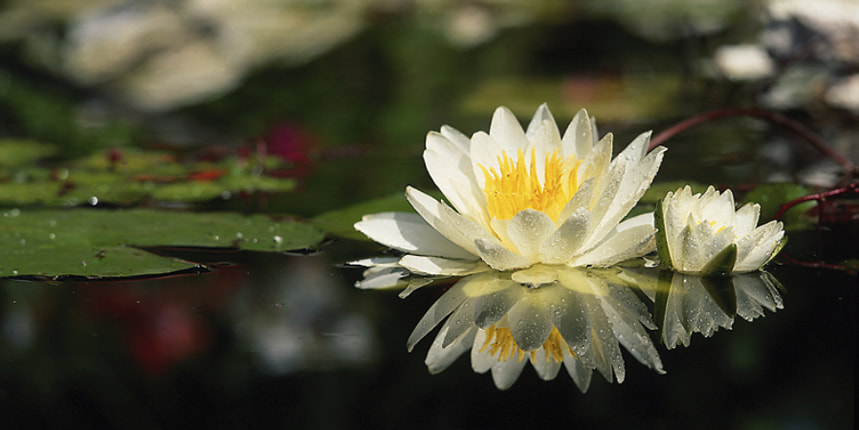|
It's all too easy for us to love with conditions! We love and want something back or we will only love once certain previous offences have been dealt with. That's not the way we are loved by the Father.
Love does not dishonour others, it is not self-seeking, it is not easily angered, it keeps no record of wrongs. Love does not delight in evil but rejoices with the truth. (1 Corinthians 13: 5-6 NIV) There is no score sheet so far as the Father is concerned. There is no notebook with a list of all the wrongs we've committed or all the things we've left undone. It's a clean sheet. When we keep a list of offences (whether in our mind or written down) it's easy to come back and dwell on them. That can lead to bitterness or anger which festers in us, only producing bad fruit. The Father's love constantly looks outward: it looks at us, sees the good in us and draws us into the truth. It's that truth which sets us free. It's the truth of our identity - that we are sons and daughters. As we are filled with this everlasting love we will be transformed and begin to reflect the love we have received. We can only be a loving people once we have become a loved people. It's amazing to think that we are loved with an everlasting love. One that began before the creation of the world and one that will run through all of eternity.
“At that time,” declares the LORD, “I will be the God of all the families of Israel, and they will be my people.” This is what the LORD says: “The people who survive the sword will find favour in the wilderness; I will come to give rest to Israel.” The LORD appeared to us in the past, saying: “I have loved you with an everlasting love; I have drawn you with unfailing kindness. (Jeremiah 31:1-3 NIV) What is this love like? In 1 Corinthians 13 Paul gives us a glimpse of what the Father's love is like. Of course, when we read this we try and measure love by our human standards. We can't grasp love with our mind, we need to receive it in our heart. When we try and measure it we will inevitably limit it to the extent of our own understanding. It is, however, limitless. His love is infinitely patient. Our humanity has limits, our patience runs out or is stretched (and we all have a limit beyond which we don't want to be stretched). He constantly perseveres for us as his love "always protects, always trusts and always hopes" (verse 7). He can be infinitely patient because he is infinitely kind. Kindness is not an 'on the surface reaction' it has depth. It sees a need and is prepared to take action; it goes beyond false cheer as we have a loving Father who wants to bring change in our lives. Not a change that seeks to condemn but one seeking our good. Kindness will always seek to do something. Our Father is immeasurably kind as he draws us into a transformation whereby we are made more like his son, Jesus. Isn't it wonderful when a friend helps you with a difficult project or walks through a tough season with you? We all need friends like that but imagine if that was something God was always doing for you.
Then I said to you, “Do not be terrified; do not be afraid of them. The LORD your God, who is going before you, will fight for you, as he did for you in Egypt, before your very eyes, and in the wilderness. There you saw how the LORD your God carried you, as a father carries his son, all the way you went until you reached this place.” (Deuteronomy 1:29-31 NIV) I find these verses very encouraging, particularly because they are written to a people in rebellion. The nation of Israel had been in captivity for a long time, they'd had a traumatic escape and then a forty year journey through the wilderness. A journey made much longer because of their persistent rebellion. Of course, there were consequences for that rebellion. In these few sentences we read of the nature and personality of the One to whom all this rebellion had been against. For forty years he had provided their daily food, their clothes and shoes did not wear out, he provided warmth at night and guided them on the journey each and every day. What a comparison of faithfulness to ingratitude. Despite the pride, rebellion and independence God truly had been a Father to his people. It is, however, God's tenderness and compassion that always strikes me. He has reached down, picked up his rebellious children and been the One who has carried them ALL the way. As he did for them so he will do for you. Whatever challenges you face today let him carry you, not only your burdens - but you. We are blessed with every spiritual blessing in Christ. These blessings, though, are not just for us in isolation. When pooled together we become a family.
Then we will no longer be infants, tossed back and forth by the waves, and blown here and there by every wind of teaching and by the cunning and craftiness of people in their deceitful scheming. Instead, speaking the truth in love, we will grow to become in every respect the mature body of him who is the head, that is, Christ. From him the whole body, joined and held together by every supporting ligament, grows and builds itself up in love, as each part does its work. (Ephesians 4:14-16 NIV) This family is likened to a body where every part has a job to do and when working together, the body, or family, will work properly. No earthly family is perfect, we all have our squabbles and disagreements. Sometimes they can be bitter and divisive but mostly they are short-lived and harmony and peace is restored. When we live in love there is something in us that does not want to dwell on the disagreement. Instead we seek restoration and relationship. It's the same with our spiritual family, the church. Yes, there are times when we are 'blown here and there' but that does not have to be the end of the story. We are held together by love and as we discover the wide range of gifts and personalities that are amongst us, we truly become the family of God. A family that loves and cares for one another. Be kind and compassionate to one another, forgiving each other, just as in Christ God forgave you. Follow God’s example, therefore, as dearly loved children and walk in the way of love, just as Christ loved us and gave himself up for us as a fragrant offering and sacrifice to God. (Ephesians 4:32-5:2 NIV) Here's another promise! We can actually understand the vastness of God's love.
I pray that out of his glorious riches he may strengthen you with power through his Spirit in your inner being, so that Christ may dwell in your hearts through faith. And I pray that you, being rooted and established in love, may have power, together with all the Lord’s holy people, to grasp how wide and long and high and deep is the love of Christ, and to know this love that surpasses knowledge —that you may be filled to the measure of all the fullness of God. (Ephesians 3:16-19 NIV) When I think of the love of God I think of something that is eternal, something that never runs out or gives up on me. I think of something that is tangible and with me every moment of every day. It's immeasurable. It has to be immeasurable or God becomes finite. It's no wonder Paul prays that we would be strengthened through the Holy Spirit. We simply can't contain the fulness of God's love in our limited state. May this be the cry of our heart. We want to know the presence of Christ living in us, we want to experience the increasing fulness of his love, we want to be filled with all the fulness of God (that's a lot of fulness). We don't understand it with our mind (that's too limiting) - we understand it with our heart. May this become your longing today! In these few verses Paul's joy is overflowing. He knows who he is and he longs that we would have the same discovery.
For this reason, ever since I heard about your faith in the Lord Jesus and your love for all God’s people, I have not stopped giving thanks for you, remembering you in my prayers. I keep asking that the God of our Lord Jesus Christ, the glorious Father, may give you the Spirit of wisdom and revelation, so that you may know him better. I pray that the eyes of your heart may be enlightened in order that you may know the hope to which he has called you, the riches of his glorious inheritance in his holy people, and his incomparably great power for us who believe. (Ephesians 1:15-19 NIV) God has blessed us with every spiritual blessing in Christ simply because we belong to him, we are his sons and daughters. This is such an amazing truth but one we often miss or see through filtered glasses. In this powerful prayer, Paul prays that the glorious Father will give us a spirit of wisdom and revelation to help us know him better. I believe this is a longing in our hearts. We really do want to know God and walk in his ways although sometimes we're not sure how that can happen. Here is the mystery: God, the Father, gives us the very thing we need to enable us to know him. We don't get to know God through our own effort, instead we receive a gift from him which enables us to know him. Not only does this gift enable us to know him, it also causes the eyes of our heart (often dimmed or closed) to be opened and then we see who we are. We find our place of belonging in the Father's family and can step into the inheritance which is freely given to sons and daughters. My prayer today is that you know more fully who God is and that you see more clearly who you are. Paul's letter to the Ephesians is a tremendously joyful celebration.
Praise be to the God and Father of our Lord Jesus Christ, who has blessed us in the heavenly realms with every spiritual blessing in Christ. For he chose us in him before the creation of the world to be holy and blameless in his sight. In love he predestined us for adoption to sonship through Jesus Christ, in accordance with his pleasure and will, to the praise of his glorious grace, which he has freely given us in the One he loves. In him we have redemption through his blood, the forgiveness of sins, in accordance with the riches of God’s grace that he lavished on us. (Eph 1:3-7 NIV) I encourage you to read chapter one and count the individual blessings that are now ours through Christ. It's not just the ones that have been listed, Paul says; every spiritual blessing is ours and has been given freely to us. There may be times when we don't feel particularly blessed, we may be going through struggles or hardships and feel that life has become a bit of a fight. That's ok! Our inheritance is not dependent on our earthly circumstances but has been secured for us and held safe in the heavenly places. If you like, they're in our heavenly bank account. We are blessed in such an extravagant way simply because we belong to God, not as a chattel or piece of property but as sons and daughters. Before the creation of the world the Father wanted a family and that family included us. We are joint heirs together with him. In our western understanding the word 'adoption' creates an image of someone who didn't belong who then became a part of the family. That's not the way it is for us; we've always belonged but got lost along the way. Perhaps, instead of adoption, being redeemed back into our sonship is a better way of looking at it. The greatest blessing of all is the assurance that our sins have been forgiven and we have been made right with God. How wonderful that he chooses to lavish his love and grace on us. The Father wants each one of us to wear a completely new garment, the garment of love. Too many people take a small bit of the new and try to attach it to what already exists. It doesn’t work.
So then, just as you received Christ Jesus as Lord, continue to live your lives in him, rooted and built up in him, strengthened in the faith as you were taught, and overflowing with thankfulness. Since, then, you have been raised with Christ, set your hearts on things above, where Christ is, seated at the right hand of God. Set your minds on things above, not on earthly things. For you died, and your life is now hidden with Christ in God. (Colossians 2:6-7, 3:1-3 NIV) Paul tells us in Colossians 2:9 that all the fullness of the Godhead lives in Christ. That means in Jesus we see the fullness of the Father and the complete life of the Spirit all revealed through the Son of God who became a man, someone we could know, see and touch. That alone is an incredible thing - the Trinity being revealed to mankind through a man. In some ways that would be enough. However, there is more. Through our new birth we are taken into Christ and so our lives become planted in him. He becomes the source of our life, everything we need can be found in him. His love and his life become our life-giving source, we draw everything we need from him. The fullness of the Trinity lives in Christ, we are in Christ and therefore the overwhelming conclusion is that the fullness of the Trinity is ours. That’s what Jesus encourages us to be fully clothed with a new garment, the garment of love, rather than settling for a small patch to mend our existing way of life. “Remain in my love so that your joy may be complete” (John 15:9-11) Philippians is a very upbeat letter as Paul is full of joy for his friends. His overwhelming joy exudes through the chapters and verses and it becomes contagious. You feel good as you read Paul's exhortations.
I thank my God every time I remember you. In all my prayers for all of you, I always pray with joy because of your partnership in the gospel from the first day until now... (Philippians 1:3-5 NIV) Further, my brothers and sisters, rejoice in the Lord! It is no trouble for me to write the same things to you again, and it is a safeguard for you. (3:1 NIV) Therefore, my brothers and sisters, you whom I love and long for, my joy and crown, stand firm in the Lord in this way, dear friends! (4:1 NIV) Rejoice in the Lord always. I will say it again: Rejoice! (4:4 NIV) Today's encouragement is simple. Over the past few weeks we have discovered our home is in Christ and that we are with him where he is. That leads us to the place of contentment where we experience a peace which goes beyond all our understanding. It's no wonder Paul could rejoice even in the midst of suffering. When we have a simple, childlike trust on our Father we become aware that our security is in him and not in our own strength. This gives us something to rejoice about. The joy of the Lord can indeed be our strength. Absolute trust will lead us to the place of contentment. Contentment: to know (and live in) the peace that goes beyond all of our understanding. What a gift!
And the peace of God, which surpasses all understanding, will guard your hearts and your minds in Christ Jesus. (Philippians 4:7 ESV) I rejoiced greatly in the Lord that at last you renewed your concern for me. Indeed, you were concerned, but you had no opportunity to show it. I am not saying this because I am in need, for I have learned to be content whatever the circumstances. (Philippians 4:10-11 NIV) That's a challenge! To be content whatever the circumstances! We spend a lot of time, money and energy seeking to have more, to be more or to do more. A new phone comes out: better camera, more data, more storage, faster processor etc - we have to have it. Why? Because we're told we won't be content unless we do. We work harder at work in order to be noticed - we want to be seen to be someone. Frankly, we're not content and as a result we lose our peace and become caught up in the never-ending cycle of seeking more. Contentment is deeper than possessions, ministry, titles or function. Contentment is the state of our heart so we, like Paul, can say whether we're in need or have plenty, that we are content. We find the secret of being in Christ. We can trust our Heavenly Father because he will meet all our needs according to the riches of his glory (Phil 4:19). Trust sounds simple, yet for many of us it is the complex process of letting go. It's recognising that we can't do it on our own, all of our striving will lead to frustration and us being robbed of our peace. Trust says that our Father is bigger and more able, he knows what is best for us and our only response is to have a childlike heart of rest and dependency on him. |
Weekly SignpostA Father to YOU is a signpost to the heart of the Perfect Father. When we became Christians we were given the right to become children of God (John 1:12). Sadly, many of us fail to take up that right and instead continue to live as slaves or orphans. But our true destiny is being sons and daughters who have a permanent place in the Father's family. This blog is an encouragement to help you know who God really is and who you really are. |










 RSS Feed
RSS Feed